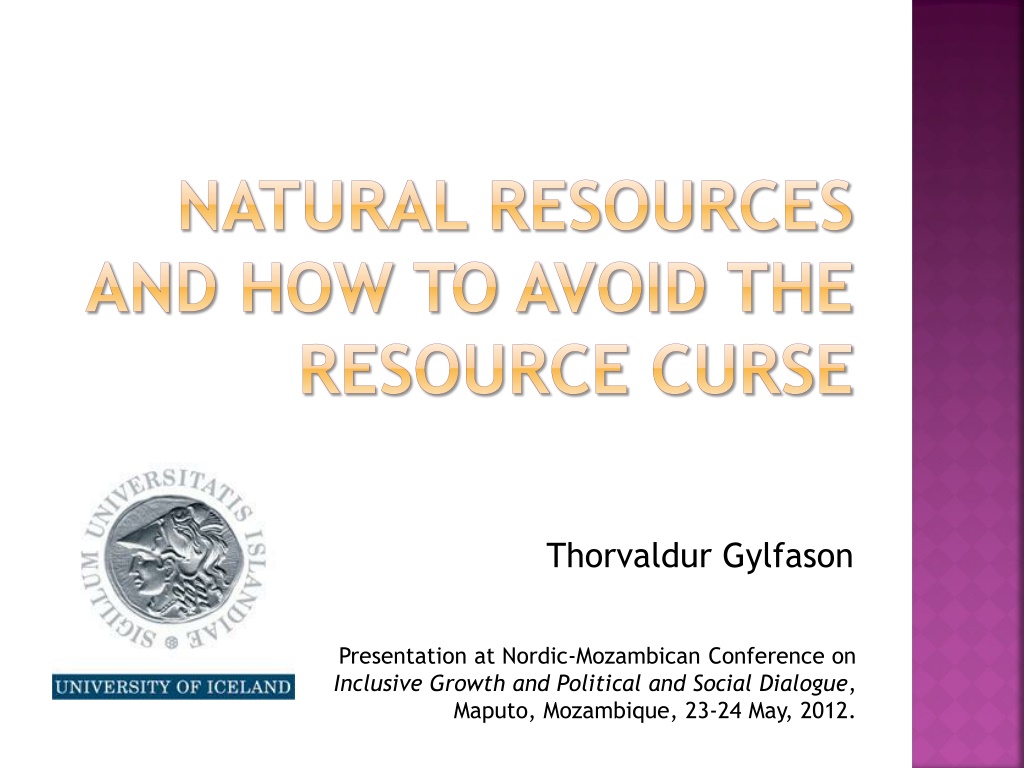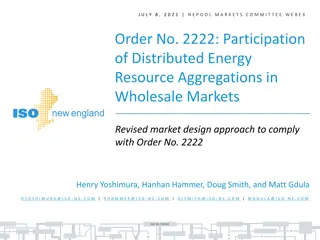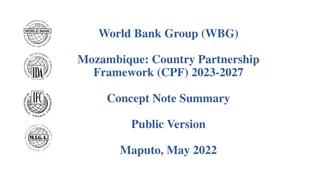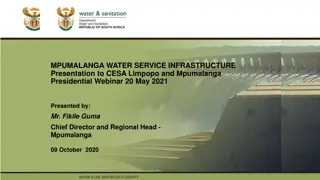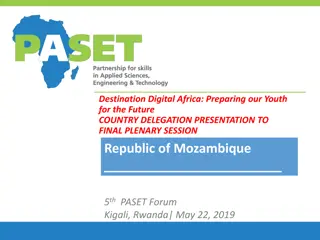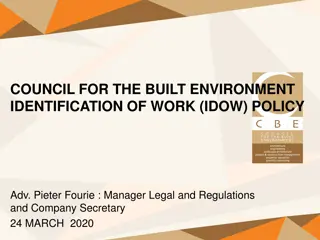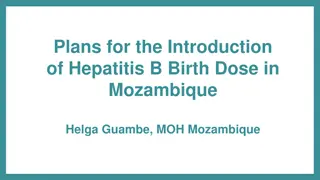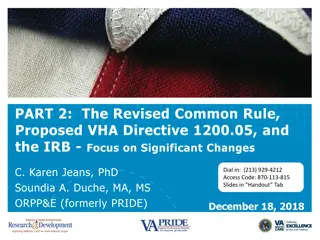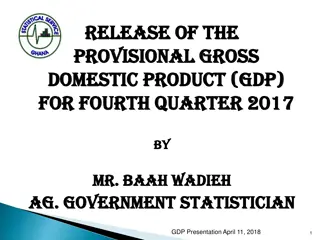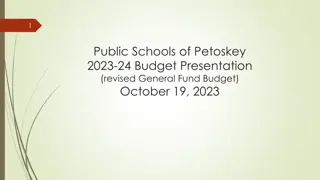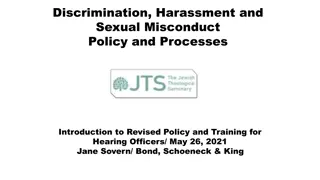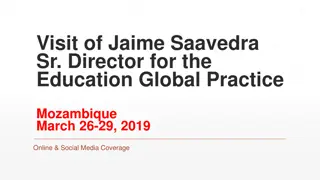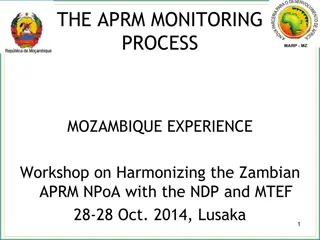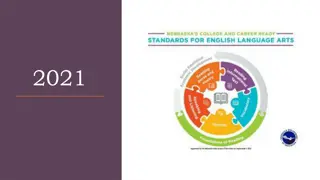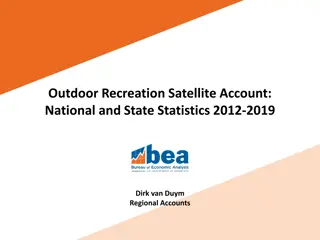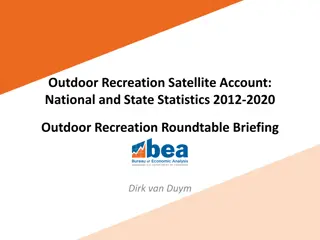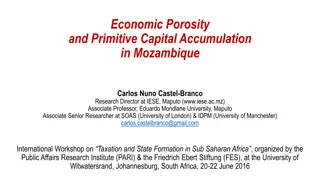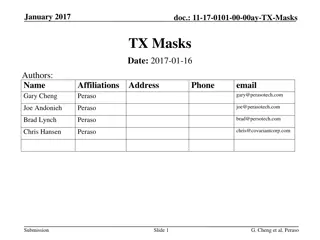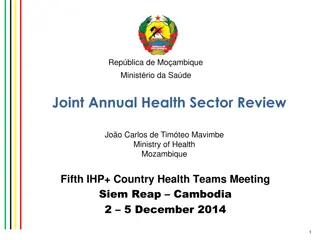Avoiding the Resource Curse in Natural Resource-Rich Countries
Mozambique, on the verge of becoming a major natural gas producer, faces the challenge of avoiding the resource curse experienced by countries like Nigeria. The presentation highlights the risks, human rights concerns, and the golden opportunity for Mozambique to leverage its natural resources for sustainable growth while avoiding the pitfalls seen in Nigeria's economic trajectory.
Download Presentation

Please find below an Image/Link to download the presentation.
The content on the website is provided AS IS for your information and personal use only. It may not be sold, licensed, or shared on other websites without obtaining consent from the author. Download presentation by click this link. If you encounter any issues during the download, it is possible that the publisher has removed the file from their server.
E N D
Presentation Transcript
NATURAL RESOURCES AND HOW TO AVOID THE RESOURCE CURSE Thorvaldur Gylfason PresentationatNordic-Mozambican Conference on Inclusive Growth and Political and Social Dialogue, Maputo, Mozambique, 23-24 May, 2012.
Photograph:Vladimir Putin, 2005. OVERVIEW 1) Mozambique vs. Nigeria 2) Real risks 3) Human rights 4) Golden opportunity
FROM GAS TO PROSPERITY Mozambique is in the process of becoming a major natural gas producer With new discoveries, the country s natural gas promises to bring in many billions of dollars, changing the face of the country Major natural resource discoveries need to be greeted by democracy like in Ghana, and unlike Nigeria, off and on, since 1960s How can Mozambique avoid the resource curse and take full advantage of this historic opportunity?
FROM GAS TO PROSPERITY Authorities need to be aware that abundant oil wealth does not constitute a one-way ticket to seventh heaven They are eager to avoid replicating the 40- year experience of Nigeria next door So let s begin with Nigeria
THE NIGERIA STORY Nigeria s per capita GDP grew more than twice as fast in 1960-70, as it did thereafter despite the colossal export revenue boom of the 1970s and beyond Why did growth slow down? Some time ago, Ms. Nenadi Usman, then Nigeria s finance minister, told the Financial Times: Oil has made us lazy She was not referring to Ghana s farmers No, she meant the generals and their friends
THE NIGERIA STORY Per capita GDP growth in Nigeria has averaged 1.1% per year since 1960 Life expectancy has risen by 10 weeks per year on average for a total of 10 more years of life for the average Nigerian from independence This is not much to show for all the oil proceeds Life expectancy in Benin and Togo, next door, went up by 18 to 21 years in the same period
MOZAMBIQUE AND NIGERIA 1980-2009 2500 Mozambique Nigeria 2000 1500 1000 500 0 Per capita real GDP (USD at PPP)
MOZAMBIQUE AND NIGERIA 1980-2009 2500 10 Mozambique Nigeria 8 Mozambique Nigeria 2000 6 4 1500 2 0 1000 -2 -4 500 -6 0 -8 -10 Democracy Per capita real GDP (USD at PPP)
THE RISKS ARE REAL Many resource-rich countries have a similar tale to tell as Nigeria of conflict, corruption, and economic stagnation, in varying proportions Algeria, Angola, Gabon, Iraq, Iran, Libya, Mexico, Equatorial Guinea, Saudi Arabia, Sudan, Venezuela, and many more
THE RISKS ARE REAL Resource-related problems manifest themselves in several different ways Upswing in export earnings following an oil or gas discovery tends to strengthen the currency, reducing the profitability of other export and import-competing industries This is the essence of the Dutch disease An overvalued currency hampers growth like an undervalued currency boosts growth; think China Due to fickle prices, booming gas exports often lead to volatility in exports and GDP Volatility is not good for growth
THE RISKS ARE REAL Abundant oil and gas tend to attract the wrong sort of people to politics Democracy is rare in oil-rich countries; think the Gulf countries The most successful oil-exporting country of all, Norway, was a fully fledged democracy long before the first barrel of oil emerged Norway s oil commandments lay down ethical principles to guide oil wealth management Oil wealth seems in many countries to have slowed down the transition from autocracy to democracy through cronyism and low taxes
THE RISKS ARE REAL Low taxes and generous transfers and subsidies, even if they amount to only a small fraction of each citizen s fair share of the nation s oil wealth, tend to weaken popular demand for democracy Abundant oil and gas tend to imbue policymakers with a false sense of security and blind them to the need for building up human resources and social capital, including democracy, key ingredients of growth
NATURAL RESOURCES CONSTITUTE HUMAN RIGHTS Natural resources belong to the people A people s right to their natural resources is a human right proclaimed in primary documents of international law and enshrined in many national constitutions Article 1 of the International Covenant on Civil and Political Rights states that All people may, for their own ends, freely dispose of their natural wealth and resources Article 1 of the International Covenant on Economic, Social and Cultural Rights is identical African Charter on Human Rights is similar
NATURAL RESOURCES CONSTITUTE HUMAN RIGHTS By law, resource rents accrue in large part to the state as trustee for the people In practice, the government can outsource oil production and reclaim the resource rent afterward within a legal framework stipulating the ways in which the government reclaims the people s share of the rent through royalties, taxes, or fees Constitution (Art. 98): Natural resources shall be the property of the State Any misappropriation of resource rent would contravene the constitution
NATURAL RESOURCES CONSTITUTE HUMAN RIGHTS Accrual of natural resource rents to the government presupposes representative democracy and, hence, by international law, the legitimacy of the government s right to dispose of the resource rents on behalf of the people By international law, this proclamation presupposes democracy
NATURAL RESOURCES CONSTITUTE HUMAN RIGHTS Key distinction between property of the nation and property of the state State property e.g., office buildings can be sold or pledged at will by the state Several countries define natural resources as state property e.g., Angola, China, Kuwait, Mozambique, Russia The property of the nation is different in that it may never be sold or mortgaged Present generation shares natural resources belonging to the nation with future generations, and does not have the right to dispose of the resources for its own benefit in the spirit of sustainable development
GOLDEN OPPORTUNITY Mozambique needs to greet its expanding gas exports with strong democracy On the Polity IV democracy index that goes from -10 in Saudi Arabia to 10 in Sweden, Mozambique now scores 5 (Botswana is 8) Mozambique can adopt governance structures designed to Separate the management of its oil wealth from short-term political pressures as in Norway Secure transparent use of gas revenues in spirit of Extractive Industries Transparency Initiative (EITI) and Revenue Watch
GOLDEN OPPORTUNITY Need institutions that immunize from the vicissitudes of politics those public policy spheres deemed not to belong in the hands of politicians E.g., independent judiciaries and central banks Likewise, an independent yet democratically accountable special authority can help decide how best to dispose in a transparent way of the people s earnings from their common oil wealth for the benefit of all the people, including unborn generations
LAST WORD GOES TO KING FAISAL: A MIXED BLESSING? Listen to King Faisal of Saudi Arabia (1964-1975): In one generation we went from riding camels to riding Cadillacs. The way we are wasting money, I fear the next generation will be riding camels again. THE END
